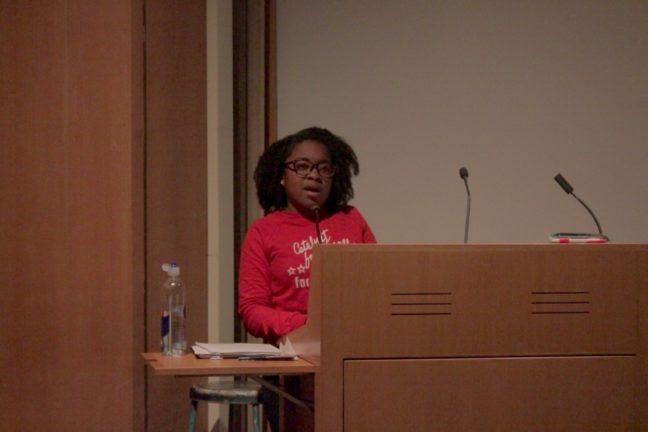In an effort to promote inclusivity when fighting for black and queer rights, Charlene Carruthers, national director of the Black Youth Project discussed some steps to take to attain further progress in the queer community.
To meet this goal is through the abolition of the prison industrial complex and encompassing diversity and progress in the queer community beyond marriage rights, Carruthers said.
The Black Youth Project, based in the South Side of Chicago, focuses on collecting data and research on these topics, providing young black people with a public voice and organizing community action.
Students, advocates discuss intersection of violence, marginalized identities
Carruthers works with young black people to advocate for change in the dynamic of the queer and black rights movements.
The first step to inclusivity is acknowledging the type of being realistic about society Carruthers said.
“Accept that you live in a racist, homophobic, and transphobic society and we can move on from there, Carruthers said.
Another necessary step in the queer liberation movement is establishing a more “encompassing” and united front. This is an important step in fighting systemic racism, homophobia and transphobia in American society, she said.
Since most of the work with the Black Youth Project is done with young black people from the ages of 18 to 25, Carruthers advocates a change in the dynamic of the queer and black rights movements where a crossover between the two is promoted.
Carruthers said the queer movement still has much to accomplish. Though same-sex marriage is now legal in the U.S., Carruthers believes marriage has not liberated all queer individuals.
Carruthers said white, gay cis-gender men were the main group that benefitted from the 2015 court ruling in favor of same-sex marriage.
“Marriage is not the key to [queer] liberation,” Carruthers said.
Instead, Carruthers said society must refocus their efforts on other topics that affect all queer people, including those are are transgender, non-binary gender-nonconforming and people of color.
She said abolishing the prison-industrial complex should be the movement’s next goal.
“The queer agenda has to include all marginalized people, and we don’t have an option not to organize,” Carruthers said.














